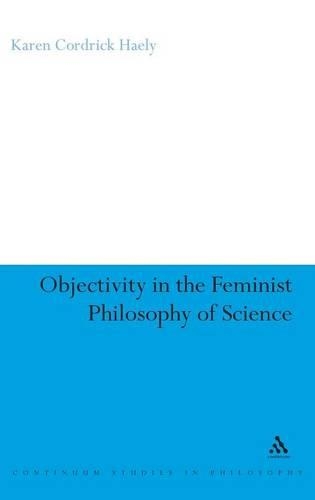
Objectivity in the Feminist Philosophy of Science
(Hardback)
Publishing Details
Objectivity in the Feminist Philosophy of Science
By (Author) Dr Karen Cordrick Haely
Bloomsbury Publishing PLC
Continuum International Publishing Group Ltd.
20th March 2008
United Kingdom
Classifications
Tertiary Education
Non Fiction
Feminism and feminist theory
501
Physical Properties
Hardback
160
Width 156mm, Height 234mm
Description
Scientific knowledge is widely considered to be the most certain kind of knowledge, free from social or cultural bias. This freedom from bias or values, the objectivity of science, is a key reason why scientific knowledge holds its privileged position in society.
Karen Cordrick Haely argues that feminist critics of science present compelling reasons to eschew the idea that science is, or should be, purely objective in the sense commonly understood to mean value-free'. This book examines the most prominent feminist ideas regarding how to revise and enrich the concept of objectivity such that we can understand, though not necessarily eliminate, the role of cultural and social interests as they play a role in science. Haely argues that these views of objectivity ought to be treated as a network of ideas, rather than as stand-alone solutions to the complexities of forming a cohesive philosophical view of scientific objectivity. The book also presents a landscape of several issues that are crucial for understanding the intersection of feminism and science.
Reviews
Haely provides a thoughtful examination of the feminist critiques of the concept of objectivity ... Concrete examples throughout the text effectively illustrate the crucial points raised by the feminist critics. But more importantly, Haely shows that the criticisms of the traditional conception of objectivity when taken together, reveal important insights into how one should re-conceive the objectivity of scientific knowledge.' Henry Kreuzman, Associate Professor of Philosophy, The College of Wooster, USA
'Haely approaches this issue ... with a carefully analytical style and without any apparent agenda ... [she] arrives at a plausible and nuanced conception of scientific objectivity that, while recognizing the inevitable influence of subjective factors, still allows objectivity to serve as a regulative ideal for the practice of science.' Don Hubin, Professor of Philosophy, Ohio State University
Mentioned-The Chronicle Review, August 8, 2008
Author Bio
Karen C. Haely teaches Philosophy at The College of Wooster (Wooster, Ohio) and Ursuline College (Pepper Pike, Ohio), USA.
